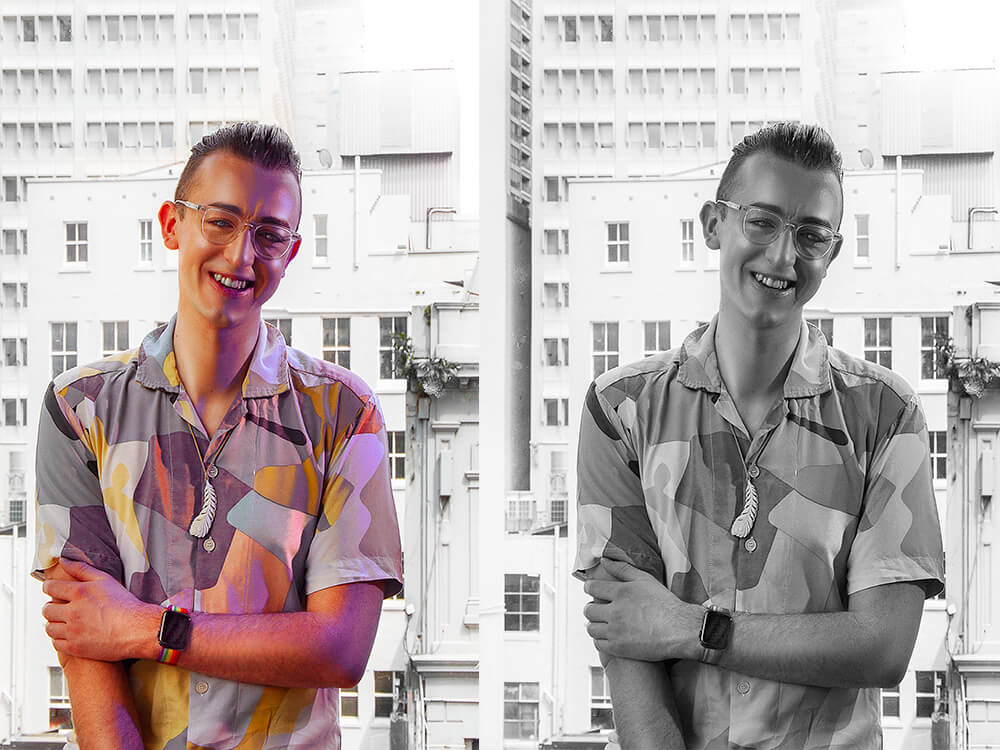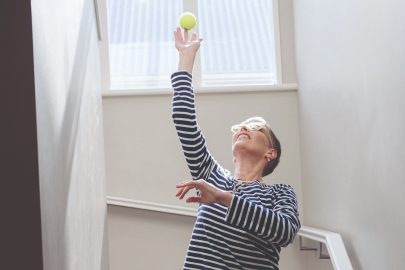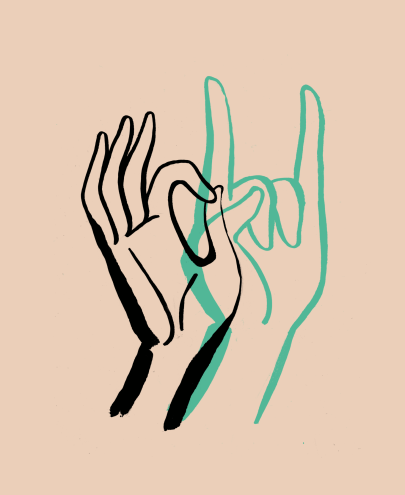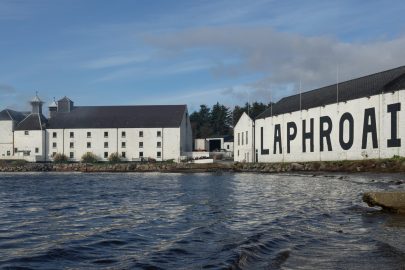Feb 3, 2020 People
Max Tweedie is the new Director of Pride. He talks to Metro about how this year will be different from ones before it – and why.
“At first you land a job like that, and there’s a moment where you go: ‘Fuck. Can I do this?’”
Max Tweedie is 21. He skipped university, working for World Vision, the New Zealand AIDS Foundation and the Green Party of Aotearoa New Zealand instead. And now, as the new director of the Auckland Pride Festival, he’s got a lot to prove. “It’s not just the weight of, ‘Can I do this?’ to prove [myself] to the people who hired me, but the weight of the community who put their faith in this organisation, in me, to authentically represent them.”
Tweedie got actively involved in politics after the 2014 election, when John Key’s National Party won for the third time in a row, but his personal turning point was earlier, during the marriage equality debate, in 2012 and ’13. “I realised then that there was no equal footing,” he says. “Just for us to exist equally… it has to be fought for.”
Tweedie says he received an induction by fire from the media through being a member of the Young Greens. Social media has increased the accessibility of people’s thoughts and opinions, opening them up to increased scrutiny. “I made some comment on an internal Facebook group, and the next thing I know I had a Stuff journalist calling me. I was like, ‘What the fuck have I done?’ I was 18, 19. What do I do with this?” Since then, Tweedie has figured out what to do with it. He’s heavily involved in activism, most notably as an organiser of a campaign to ban conversion therapy in New Zealand, created in direct response to TVNZ’s Sunday documentary exposing the practice.
In 2018, Tweedie found himself at the centre of the backlash following Pride’s ban of uniformed police officers in the parade, advocating for the policy on The Project and Newstalk ZB. “The backlash was so vitriolic that I think everyone thought we had to sit down and shut up,” he says. “But there are queer communities that are depending on us, on this decision, in changing Pride.”
?READ MORE: What really happened to the Pride Parade?
The Auckland Pride Festival has received an overhaul for 2020. The director role is new. And Pride has stuck to its guns, leaning even more into the intent to reclaim Pride for the community it represents despite the loss of corporate sponsorship. After the disagreement over uniformed officers, a leadership battle split Pride in two, and the planned parade down Ponsonby Rd was transformed into a free-to-participate, unsponsored march (‘OurMarch’) from Albert Park to Myers Park. This year, the march returns and will be expanded on with an official after party (‘OurParty’).
Pride has also added a new tikanga takatapui activator role to ensure involvement of Maori goes beyond the tokenistic, something Pride was commonly criticised for in the past. And it hasn’t changed its position on the uniformed police ban for 2020. “I was standing on the frontlines in Ihumatao, arm-in-arm with mana whenua, standing face-to-face with these police officers,” he says. “It was terrifying. Is this who we want at Pride? How are Maori communities who are fighting for their land supposed to feel when those same police officers are waving rainbow flags?”
There’s an obvious new energy, some of which can be attributed to Tweedie, who speaks with a media-ready rhythm: his language precise and inclusive to a fault, but passionate, deftly balancing the political and personal. Our conversation swerves between the current government’s lack of action on rainbow issues, the double-edged sword of drag’s new-found popularity, and our shared experiences of codeswitching when navigating differing worlds (“No question, if I’m around more masculine guys, my voice drops an octave”).
We meet shortly after the new Pride & Spark Empowerment Initiative was announced, a project that will provide funding, workshops and mentorship to marginalised voices in the queer community, aiming to address the monetary barrier to registering grassroots events during Pride. Tweedie is particularly proud this one came through. “As soon as I got into the role, that was the final barrier I really wanted to address and fix in my first year,” he says. “This initiative is so core to me, because if we don’t do this, we aren’t actually walking that walk.”
Trying to break down barriers and address accessibility issues was a huge risk for the festival, but, for Tweedie, the harder route is the right route, if it’s one that serves their communities more effectively. This change in direction has been steered by a shift in their membership, and a conscious shift in who they’re listening to. Listening is the operative word; people reach out and changes are made. “People can get their back up quite easily when they’re criticised about inclusivity or diversity, but if diverse communities are telling you something, then shut up and listen to it. It’s about owning it, apologising and learning.” Tweedie laughs with self-awareness. “The litmus test is not middle-class white gay men.”
Auckland Pride Festival runs 1-16 February 2020, at various locations.
This piece originally appeared in the January-February 2020 issue of Metro magazine, with the headline “Rainbow youth”.






